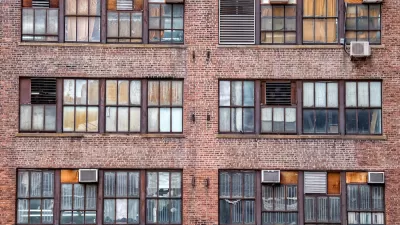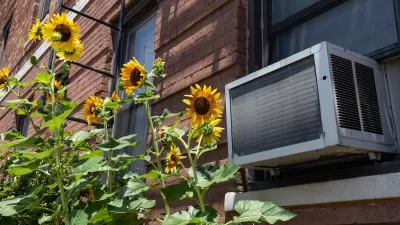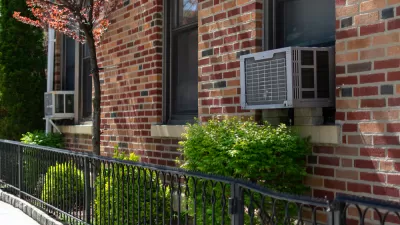With temperatures reaching record highs in cities around the country, local officials are implementing measures to ensure vulnerable residents have adequate cooling.

After three elderly women died, likely from heat-related causes, in a Chicago apartment building, a city alderwoman introduced updates to the city’s existing heating and cooling ordinance that will ensure cooling as an essential right. As Rebecca Redelmeier writes in Next City, “The new rules, which the city council approved last month and have already taken effect, mandate that all large condominiums and senior living buildings have designated cooling areas where cooling must be turned on when the outside heat index exceeds 80 degrees.”
With current temperatures in Chicago hitting the highest numbers in a decade, the ordinance comes at a crucial time for residents. “While cities across the country have long had laws about winter heat requirements, getting officials on board with the reality and urgency of cooling needs has been an uphill battle. The stakes are only climbing higher as climate change causes more frequent heat waves and hotter summers.”
Cooling can also be unaffordable for many households. “Cooling’s potentially high cost is not addressed in the new legislation, leaving some residents unable to afford to cool their homes. Though public programs exist to help low-income families cover utility costs, most don’t include cooling cost assistance.” With temperatures steadily rising year after year, advocates say the city should do more to protect people from extreme heat. According to Mark Wolfe, executive director of the National Energy Assistance Directors’ Association, “this summer is a wake-up call. It’s what the future’s going to look like.”
FULL STORY: Inside Chicago’s Effort to Protect Tenants’ Right to Cool Air

Planetizen Federal Action Tracker
A weekly monitor of how Trump’s orders and actions are impacting planners and planning in America.

Congressman Proposes Bill to Rename DC Metro “Trump Train”
The Make Autorail Great Again Act would withhold federal funding to the system until the Washington Metropolitan Area Transit Authority (WMATA), rebrands as the Washington Metropolitan Authority for Greater Access (WMAGA).

The Simple Legislative Tool Transforming Vacant Downtowns
In California, Michigan and Georgia, an easy win is bringing dollars — and delight — back to city centers.

The States Losing Rural Delivery Rooms at an Alarming Pace
In some states, as few as 9% of rural hospitals still deliver babies. As a result, rising pre-term births, no adequate pre-term care and harrowing close calls are a growing reality.

The Small South Asian Republic Going all in on EVs
Thanks to one simple policy change less than five years ago, 65% of new cars in this Himalayan country are now electric.

DC Backpedals on Bike Lane Protection, Swaps Barriers for Paint
Citing aesthetic concerns, the city is removing the concrete barriers and flexposts that once separated Arizona Avenue cyclists from motor vehicles.
Urban Design for Planners 1: Software Tools
This six-course series explores essential urban design concepts using open source software and equips planners with the tools they need to participate fully in the urban design process.
Planning for Universal Design
Learn the tools for implementing Universal Design in planning regulations.
Smith Gee Studio
City of Charlotte
City of Camden Redevelopment Agency
City of Astoria
Transportation Research & Education Center (TREC) at Portland State University
US High Speed Rail Association
City of Camden Redevelopment Agency
Municipality of Princeton (NJ)





























